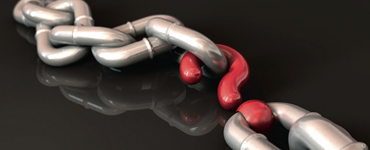Is your print business set up to be part of a supply chain that demands environmental accountability?If you are a print supplier to Midlands- based marketing solutions company Media Group then you will know of its demand that you evolve your environmental policies alongside its own. It’s a move that no doubt indicates a trend so it’s worth understanding why Media Group has invested the time and money in becoming the UK’s first carbon balanced business and how it expectsits sustainable development plans to impact upon its supply chain.
Paul Bussingham, business development manager for the group, is clear that going the carbon balancing route is “a crucial step towards our long term sustainability as more and more companies are looking for environmental wins.” To that end Media Group is also working towards ISO 14001, which it expects to have by the end of the year.
And as its own environmental credentials become a bigger part of its own marketing message, so does the onus on working with ‘greener’ partners.
“We employ 23 people in Oldbury West Midlands, and offer clients a full marketing package which includes all types of print, multi media, storage and logistics, creative services and much more besides. But we are not manufacturers; we work with others to deliver the print etc.,” explains Bussingham. “We have found that being pro-active and offering our clients credible environmental benefits has set us aside from our competitors and given us a competitive edge. It is important to us that we choose the right media and print partners to take us forward in the future, so we can deliver what our clients are looking for. So we will be expecting our current wide-format suppliers to evolve with us, to enable us to deliver an innovative environmental package. Companies that do not move with the times get left behind.”
He adds: “We choose our supply partners very carefully: for instance, are they ISO14001 accredited? Have they offset their carbon footprint? Are they offering environmentally friendly material alternatives? As I currently understand it, none of our wide-format suppliers are carbon balanced. But you just have to look at what we are doing as a company to understand that Media Group will clearly be looking for wide- format suppliers that can enhance our environmental message when we are promoting the story to our existing and potential clients. Environment issues are here to stay, and becoming carbon balanced is a cost effective way of showing customers and potential customers that you are ahead of the game and that you can help them achieve their own company environmental commitments. So it’s a real win with clients that themselves have an environmental policy and carbon reduction targets; or with any company that employs a CR or environmental manager.”
Communicating this ‘green’ ethos to clients is clearly important to Media Group, and being able to show them that its own suppliers are following the curve is part of that. Environmental accreditations and development schemes at its print partners are core, but Bussingham points out that clients also need to be educated and kept up to date on the green product and process side of things, and that it’s there too that the group needs its printer partners on board.
“How many end user customers know about wide-format substrates and how environmentally friendly they are? Polyprop instead of PVC? What machine innovations have there been to reduce the environmental impact? We need to know any new environmental innovation so we can keep our clients informed,” stresses Bussingham.
“We’ve got to work it out together. Early adopters of environmental initiatives will grow their business significantly in the coming years, which is why Media Group has become carbon balanced. It is vital that we look at what our clients are going to require in the future and prepare now. It has been proven over many years that forward thinking companies who embrace change and innovation are the most successful.”


